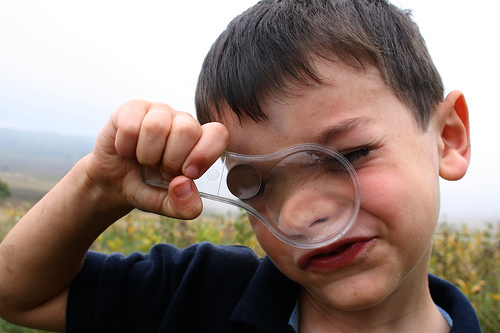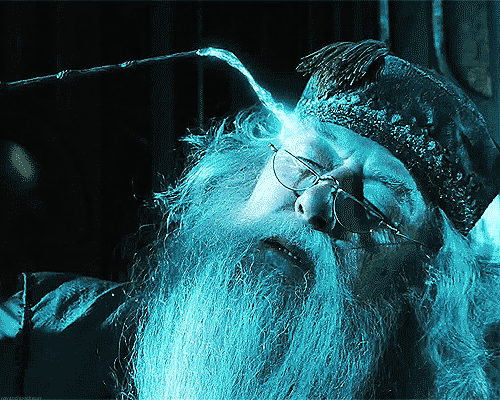I love how we have to write down everything that stands out to us – anything that we have particularly noticed. There’s a saying that goes “an unwritten goal is merely a wish”; there is power in that. It seems to compel us to do something more with it because it has been physically manifested in some way.
Seems. We talked about this word today. We use this word to mean that we don’t actually know for sure, but other sources help us infer what is happening. (eg. the dog seems to like being petted because it wags it’s tail when we do it. Tail wagging is it’s sign of happiness.)
Did a really eye opening exercise today about relations and anthropocentrism (or the lack of it). Here are my masterpieces:

First off, yes, I am married. (not sure if many have noticed..) I found it a bit tricky to do this with my husband, Elijah, in mind because we do so many things together, and for each other. For example, I cook for him at times, and he does the same for me. However, he is also my protector, because he is so much stronger and bigger than I am and I am unsure as to what physical danger I could protect him from that he couldn’t do himself. Perhaps I could protect him from being heart broken…
 The second one we did was with an object. The first thing that came to mind was my apartment. It seemed so much easier because it was easier to measure and identify what each was doing for the other. I was “feeding” the home with electricity and water by paying the bills, and it was in turn allowing me to use electricity and water because it has a connection to the mains and powerpoint wall sockets and pipes. I wonder, since a house’s purpose is to house a person (or two), am I allowing it to fulfil it’s purpose by occupying it? Do I give the home a sense of purpose? If it was left unoccupied will it “feel” worthless and like it has failed?
The second one we did was with an object. The first thing that came to mind was my apartment. It seemed so much easier because it was easier to measure and identify what each was doing for the other. I was “feeding” the home with electricity and water by paying the bills, and it was in turn allowing me to use electricity and water because it has a connection to the mains and powerpoint wall sockets and pipes. I wonder, since a house’s purpose is to house a person (or two), am I allowing it to fulfil it’s purpose by occupying it? Do I give the home a sense of purpose? If it was left unoccupied will it “feel” worthless and like it has failed?
I think it was easier to trace this web of relations in terms of “things” but with human emotions and relationships (huh, is a relation different from a relationship?)* it’s so much harder and more difficult – and yet can it be enough just to use the word “love”?
“Love” is a “Black box” – I like to see it as a general mystery. Something that you notice but can never really truly explain unless you look inside it and pick out what makes it so. You have to unravel all the little bits and tie down the “relation strings” (meaning to relate it to other things) to open it up and then you can see the big picture that was hiding in the black box. How can we quantify feelings and emotions? Do we use the little moments that contribute to the development and sustenance of such feelings or do we measure it using scientific markers such as increased heart rate, dilation of the pupils and the human version of the mating call?
How can we notice the micro and the macro? Perhaps not all at once, but is it better to go outside in? Or inside out like the ripple effect? Or is it more like psychology’s butterfly effect? I think it is both altogether, which shows how life is amazing and very non-linear. But does that make me feel like I shouldn’t do anything at all so there will be a calm, or that I should do lots and stir up the water? I do not know.
Adrian said “agency is controlled by the relations that make it possible.” If we can think this way and master the technique of mapping out the web of relations, does that mean that we can then predict ones agency? Can we find out, based on all the relations he has to others and to things like his job, what he will choose? Is the Minority Report technology possible?
*Update:
Relation = a thing’s effect on or relevance to another
Relationship = the way or state of being connected



 Cinema’s definition of “a story”. Having a resolution. La La Land – how it didn’t end in the typical Hollywood way where “boy meets girl, they get together and stay together” they go their own paths and they have successes, and some failures, their lives do not “end” in the movie but they move on, they had that moment in both character’s lives, but it was just “that one time”. Much like how in life we meet different people at a time in our life, this class for example, and we become friends and work together and have shared goals and dreams, but because the semester ends, our relations end. (cinema’s attempt at breaking out of the narrative.)
Cinema’s definition of “a story”. Having a resolution. La La Land – how it didn’t end in the typical Hollywood way where “boy meets girl, they get together and stay together” they go their own paths and they have successes, and some failures, their lives do not “end” in the movie but they move on, they had that moment in both character’s lives, but it was just “that one time”. Much like how in life we meet different people at a time in our life, this class for example, and we become friends and work together and have shared goals and dreams, but because the semester ends, our relations end. (cinema’s attempt at breaking out of the narrative.)  What about our brains? The amount that our brains can contain seems to be infinite – or is it constrained by memory? though memory itself is but information recall; the process of bringing it up from the depths of stored knowledge to the “viewing platform”. How do you keep knowledge? how is it entered in? Does it grow over time? Does it need to be fed? Are there compartments, or are they all in a big heap? Is a memory different from knowledge?
What about our brains? The amount that our brains can contain seems to be infinite – or is it constrained by memory? though memory itself is but information recall; the process of bringing it up from the depths of stored knowledge to the “viewing platform”. How do you keep knowledge? how is it entered in? Does it grow over time? Does it need to be fed? Are there compartments, or are they all in a big heap? Is a memory different from knowledge?


 The second one we did was with an object. The first thing that came to mind was my apartment. It seemed so much easier because it was easier to measure and identify what each was doing for the other. I was “feeding” the home with electricity and water by paying the bills, and it was in turn allowing me to use electricity and water because it has a connection to the mains and powerpoint wall sockets and pipes. I wonder, since a house’s purpose is to house a person (or two), am I allowing it to fulfil it’s purpose by occupying it? Do I give the home a sense of purpose? If it was left unoccupied will it “feel” worthless and like it has failed?
The second one we did was with an object. The first thing that came to mind was my apartment. It seemed so much easier because it was easier to measure and identify what each was doing for the other. I was “feeding” the home with electricity and water by paying the bills, and it was in turn allowing me to use electricity and water because it has a connection to the mains and powerpoint wall sockets and pipes. I wonder, since a house’s purpose is to house a person (or two), am I allowing it to fulfil it’s purpose by occupying it? Do I give the home a sense of purpose? If it was left unoccupied will it “feel” worthless and like it has failed? Did an exercise of how we predict our learning will be for this semester. I drew a line that went up in a gradual slope – I think I’ll learn and understand more and more as the semester progresses. And if not, I’ll ask questions so hopefully I won’t have bouts of not knowing what’s going on at all. My “recipe” for participation and learning is to read the assigned reading, read news and current affair articles so that I am updated and “noticing” things about the world and it’s people. I want to be able to find a ‘passion point’ before the mid semester break; it’s something that I’m interested in and passionate about that I will always want to learn more about. Because learning things in itself is interesting, but I want to choose something that will keep me focused. I also want to take notes of what I’ve learnt in class and throughout the week to practice the art of noticing what’s going on around me and see if I can find trends and explanations – perhaps to keep me accountable in actually doing this, I could share something every week of something I have learnt/noticed/am intrigued with from the past week.
Did an exercise of how we predict our learning will be for this semester. I drew a line that went up in a gradual slope – I think I’ll learn and understand more and more as the semester progresses. And if not, I’ll ask questions so hopefully I won’t have bouts of not knowing what’s going on at all. My “recipe” for participation and learning is to read the assigned reading, read news and current affair articles so that I am updated and “noticing” things about the world and it’s people. I want to be able to find a ‘passion point’ before the mid semester break; it’s something that I’m interested in and passionate about that I will always want to learn more about. Because learning things in itself is interesting, but I want to choose something that will keep me focused. I also want to take notes of what I’ve learnt in class and throughout the week to practice the art of noticing what’s going on around me and see if I can find trends and explanations – perhaps to keep me accountable in actually doing this, I could share something every week of something I have learnt/noticed/am intrigued with from the past week.